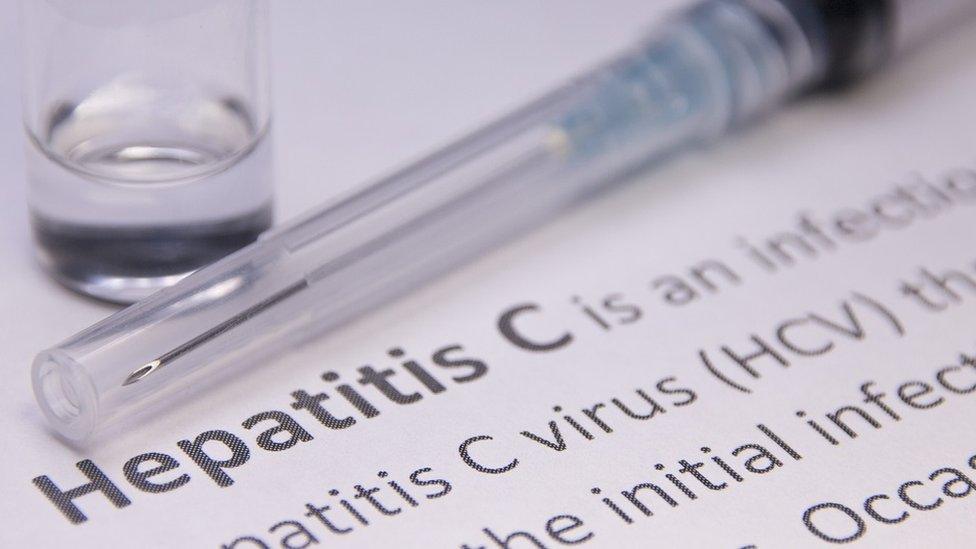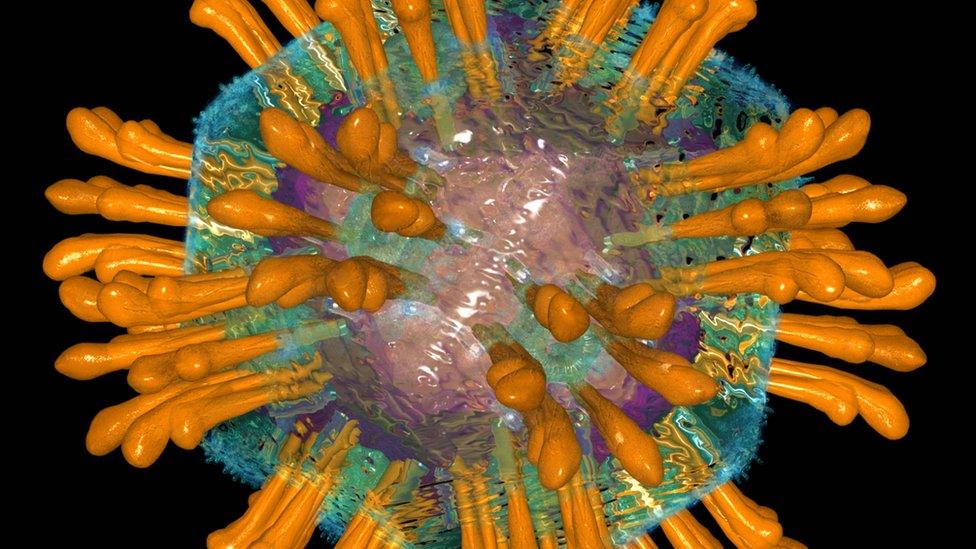New plan to 'eliminate' hepatitis C in Scotland by 2024
- Published

Plans to effectively eliminate hepatitis C by 2024 have been unveiled by the Scottish government.
An estimated 21,000 people in Scotland live with the chronic viral infection which causes progressive damage to the liver.
Three years ago ministers pledged to eliminate the virus by 2030 but now say the goal can be reached sooner.
Experts last year warned that not enough progress was being made in tacking the problem.
In 2018/19, NHS Scotland exceeded its target to treat 2,000 people for hepatitis C and ministers plan to ramp up the number of people being treated annually.
The World Health Organisation (WHO) has set targets for the elimination of hepatitis C as a public health threat, including treating 80% of those who are eligible for treatment and reducing mortality from hepatitis C infection by 65%, by 2030.

Hepatitis C infection can cause cirrhosis and liver cancer
Public Health Minister Joe Fitzpatrick said: "Scotland has long been known as a world leader when it comes to tackling hepatitis C and this ambitious target confirms that we are still leading the way in our mission to effectively eliminate the virus by 2024 six years ahead of the WHO expectations.
"Recent figures show we are exceeding our targets on the number of people we are treating for hepatitis C and it is vital that we maintain this momentum.
"We must keep getting the message out that hepatitis C can be cured with a short course of pills, and that anyone who has ever been at risk should get tested."
The majority of people with hepatitis C have a history of injecting drugs and many are homeless and difficult for health professionals to reach.
In a report published last year, external, the Hepatitis C Trust said tackling the disease should be a "national priority" and said more should be done to address the problem.
A plan agreed by the Scottish government and its agency Health Protection Scotland determined that having no more than 5,000 people infected with hepatitis C and new annual presentations of the virus in single figures would meet the WHO target of elimination in the Scottish context.

What is hepatitis C?
It is a blood-borne virus that primarily affects the liver and can cause fatal cirrhosis and liver cancer if left untreated.
It is transmitted through blood-to-blood contact, and disproportionately affects groups such as people who inject drugs, homeless people and men who have sex with men.
Significant numbers were infected by the NHS through infected blood and blood products.
People infected with hepatitis C often experience few or no symptoms, which can result in them living with the virus for many years without being diagnosed, increasing the risk of severe liver damage.
Hepatitis C is preventable, treatable and has cure rates of upwards of 95%.
Scotland also has the highest prevalence of the virus in the UK and about 1,800 new cases are diagnosed each year.